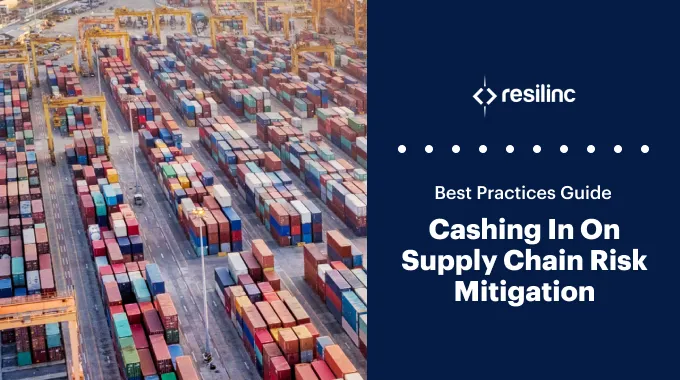Ready for a supply-chain-themed movie night? Check out these disaster movies!
Disaster movies have been around for over 100 years. The first disaster movie, “Fire!” came out in England in 1901 and depicted firemen on the scene of a burning house. Since then, the stakes (and the budgets) of these movies have grown much higher. Massive global earthquakes, the coming of a second ice age, enormous volcanic eruptions, and more have all graced the silver screen.
As professionals who monitor the supply chain daily for potential disruptions, we can’t help but see the supply chain everywhere—yes, even in disaster movies. In this blog, we look at the top 10 supply chain events in disaster movies based on economic impact and general disruption to supply chain operations. Grab some popcorn and get ready for a supply chain-themed movie night!
The Criteria for This List of Supply Chain Movies
For this list, we set rules: focus on plausible scenarios and exclude true stories and classics. Our first category, “It Could Happen,” eliminates sci-fi scenarios like volcanoes in L.A. (Volcano, 1997) and land sharks (Sharknado, 2013). Alien invasions (Cloverfield, 2008) and apocalyptic films (Independence Day, 1996) are out. In addition, “End of the World” movies like This the End (2013) have also been eliminated. If they were not, we would have a 10-way tie for first place in terms of economic damage and disruption to supply chain operations.
The second rule avoids true stories and classic disaster movies. Historical events like Pompeii (2014) are omitted, assuming supply chains were relatively less connected way back then. Logistics-themed disasters (Poseidon Adventure, Airport, Airplane!, Titanic) and localized impact films (Towering Inferno, Twister, Outbreak) are also left out due to limited effects on supply chain operations.
The Top 10 Supply Chain Disaster Movies
1. Contagion (2011)
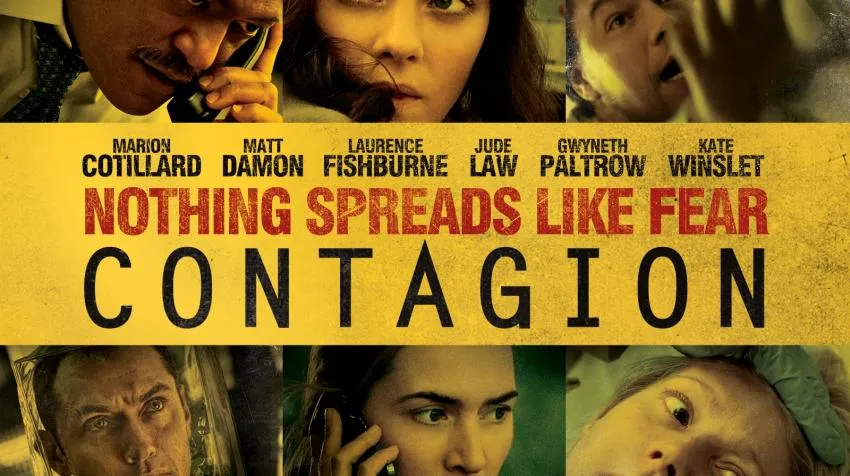
Despite being released nine years earlier, the synopsis for this movie sounds eerily similar to the COVID-19 pandemic—which is probably why this film has recently garnered attention. In Contagion, a highly transmissible virus quickly spreads, creating a worldwide pandemic as scientists race to create a vaccine. It’s not hard to imagine the types of supply chain disruptions that would arise in this situation, such as severely halted and constrained international trade and widespread shortages.
2. The Day After Tomorrow (2004)
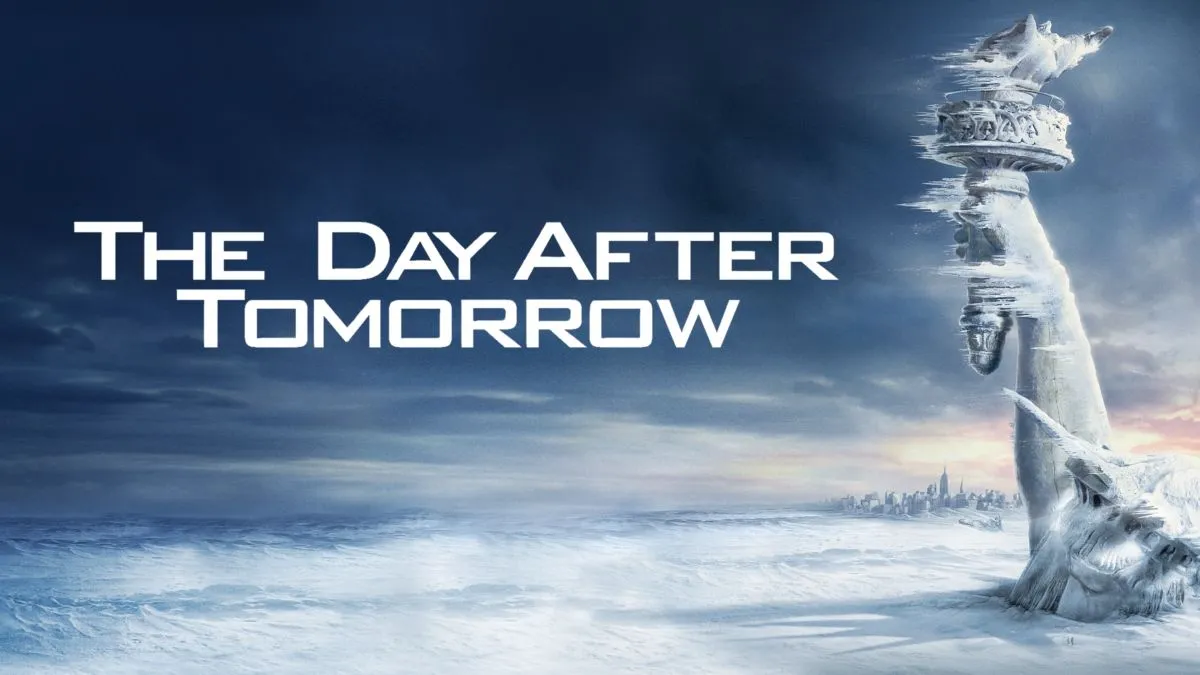
We typically think of rising temperatures and global warming when we think of climate change. However, the day after tomorrow envisions a different outcome: a second ice age. The iconic movie poster for The Day After Tomorrow shows the Statue of Liberty buried in Arctic snow due to extreme weather events. In the movie, super-storms ravage the world: Tokyo is struck by giant hailstorms, Los Angeles faces massive tornados, and temperatures drop to -150 Fahrenheit. Extreme weather like this would damage manufacturing and transportation infrastructure in the U.S. and key regions worldwide. Due to unhabitable climates, millions of people would be displaced and relocated.
3. Deep Impact (1998)
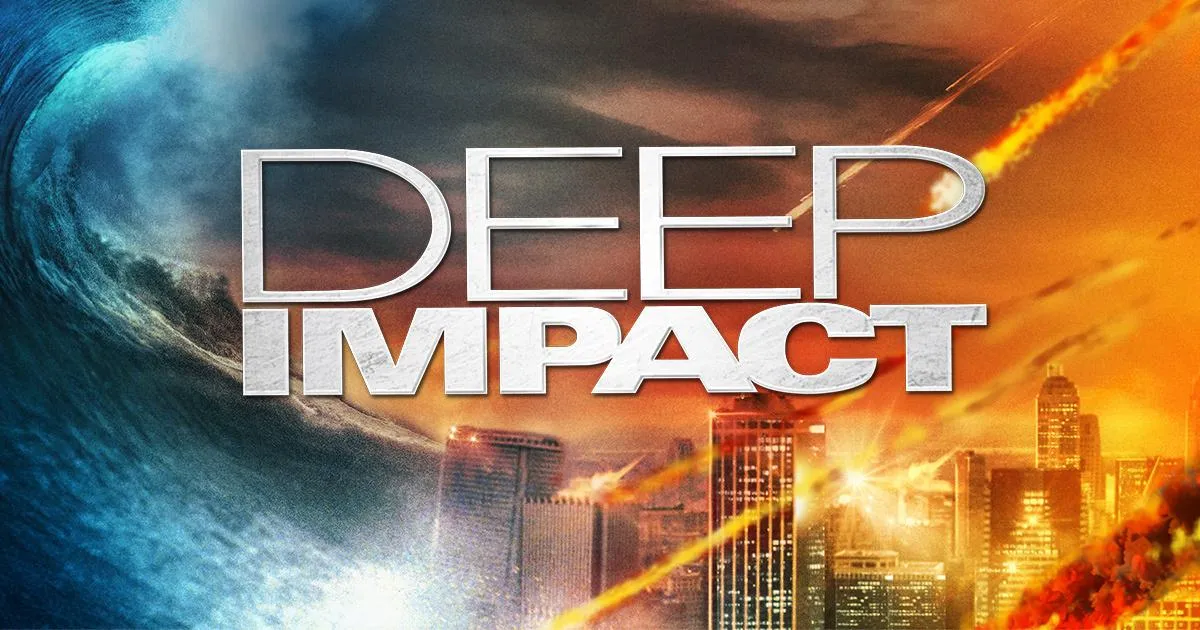
In Deep Impact, a comet strikes the earth, creating a mega-tsunami that devastates the Atlantic coasts of North America, South America, Europe, and Africa. If a celestial event like this happened, we would likely see disruptions to transportation, communication, and resource availability. Satellites and communication infrastructure are vital for coordinating supply chain activities globally. The destruction or disruption of these systems, as depicted in the movie, would make it challenging to communicate and coordinate shipments, track inventory, and manage logistics.
4. White House Down (2013)
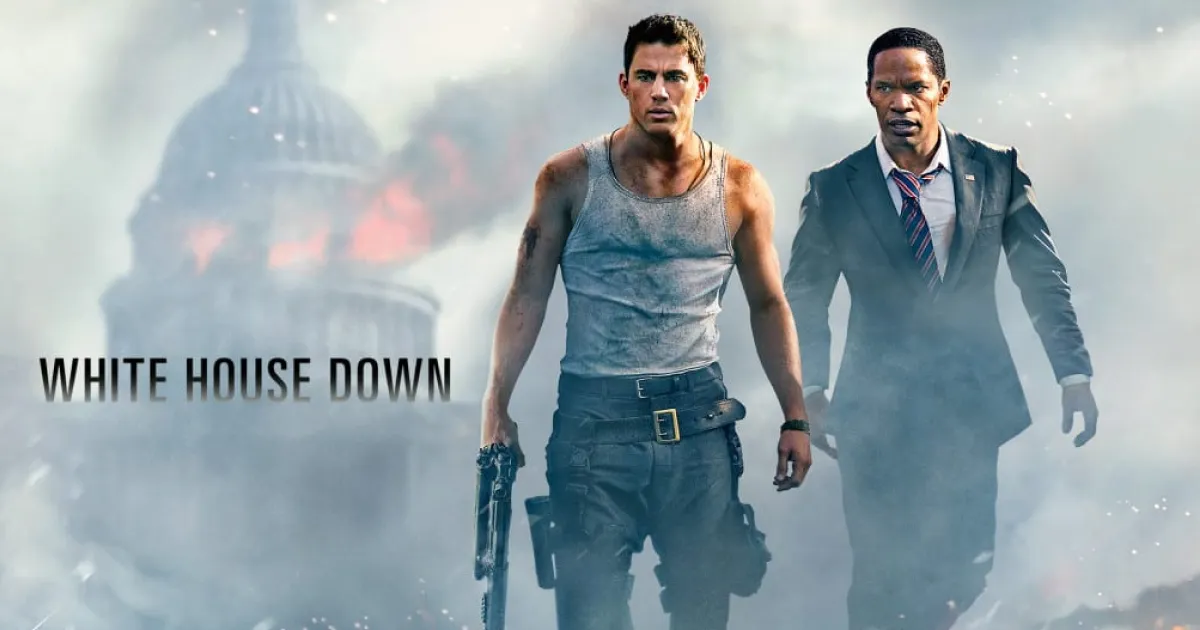
A paramilitary group seizes control of the White House in this action-thriller. Global trade is put on hold as the fate of the world leader of the largest economy hangs in the balance. An attack on a symbol of political power like the White House would likely lead to increased security measures globally. This heightened security could impact the movement of goods and people, slowing down the supply chain as stringent security checks and protocols are implemented. In a scenario involving a terrorist takeover, there might be an increased focus on cybersecurity. Fear of cyber threats could prompt governments and businesses to enhance cybersecurity measures.
5. Fail Safe (1964)

In the 1964 film Fail Safe, Moscow and NYC are destroyed in a Cold War era thermo-nuclear first strike and response. Supply chains reel from impact to global corporation HQs, financing, and energy concerns, creating a geopolitical crisis. The fear of nuclear war and its aftermath would likely lead to the closure of borders, trade routes, and ports. International trade, a cornerstone of the modern supply chain, would be severely interrupted, leading to shortages of goods and disruptions in the production process. This chaos would likely lead to regulatory uncertainty, making it challenging for businesses to navigate international trade agreements and regulations.
6. The China Syndrome (1979)
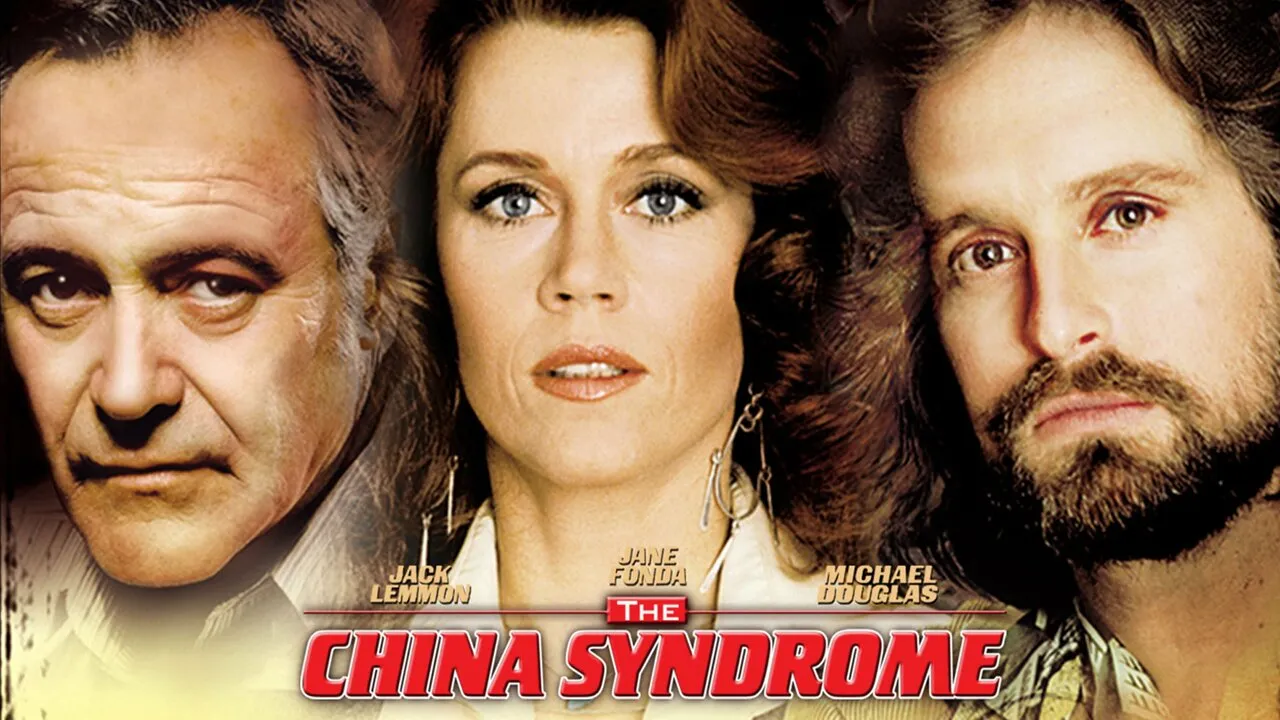
It is feared that the nuclear reactor core will melt down into the earth, hitting groundwater and contaminating the surrounding area with radioactive steam. A nuclear disaster, as depicted in the film, would likely result in a reassessment of nuclear power as an energy source. This could lead to a shift away from nuclear energy, impacting the supply of electricity. Industries heavily reliant on a stable power supply may face disruptions, affecting manufacturing processes and the supply chain. In a real-world scenario, the impact on the supply chain would depend on the scale of the nuclear incident, the industry’s dependence on nuclear energy, and the subsequent regulatory and public responses.
7. San Andreas (2015)
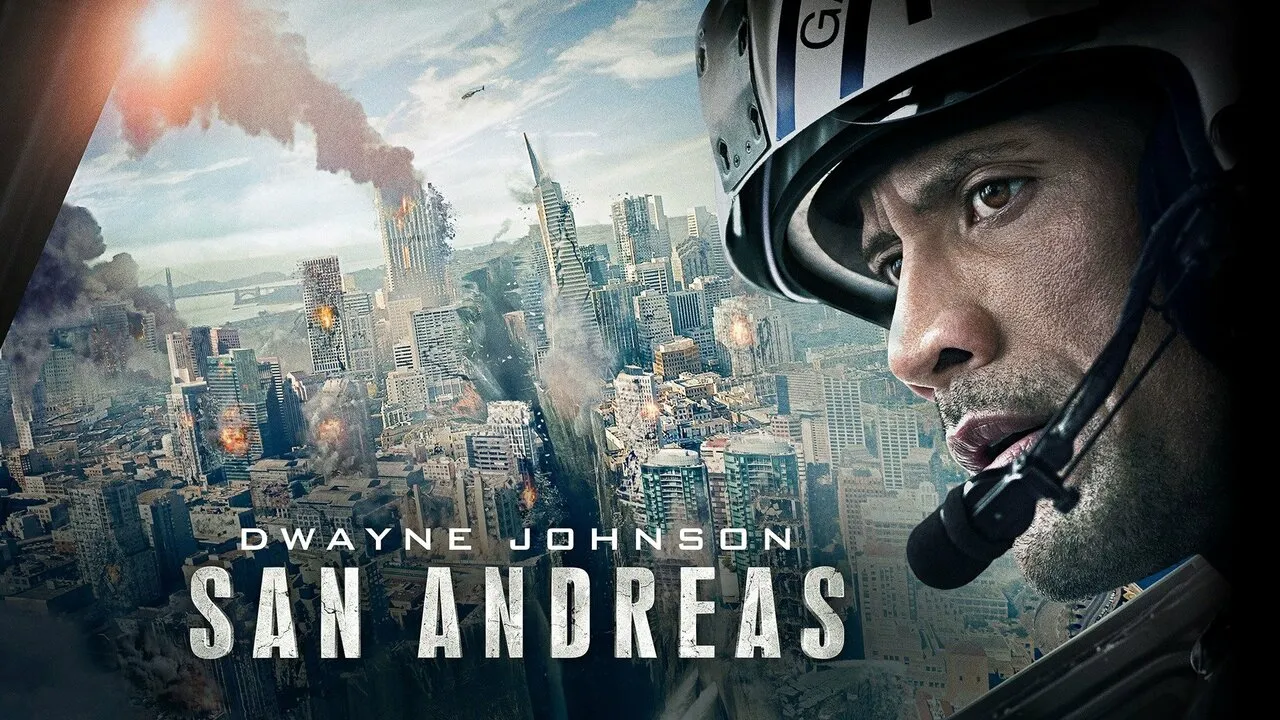
If California was a country, its $3.1 trillion economy would be the fifth biggest in the world. Thus, a catastrophic earthquake in California would have a profound supply chain impact. Extensive infrastructure damage to roads, bridges, and the biggest port in the U.S. (Port of Los Angeles) would disrupt the efficient movement of goods. The destruction of transportation networks would hinder raw material and product movement, rendering ports inoperable and impacting international trade. Companies in quake-prone regions might face rising insurance costs and need to reconsider risk management strategies. The financial implications of rebuilding and ensuring business continuity become crucial considerations for affected businesses.
8. Earthquake (1974)
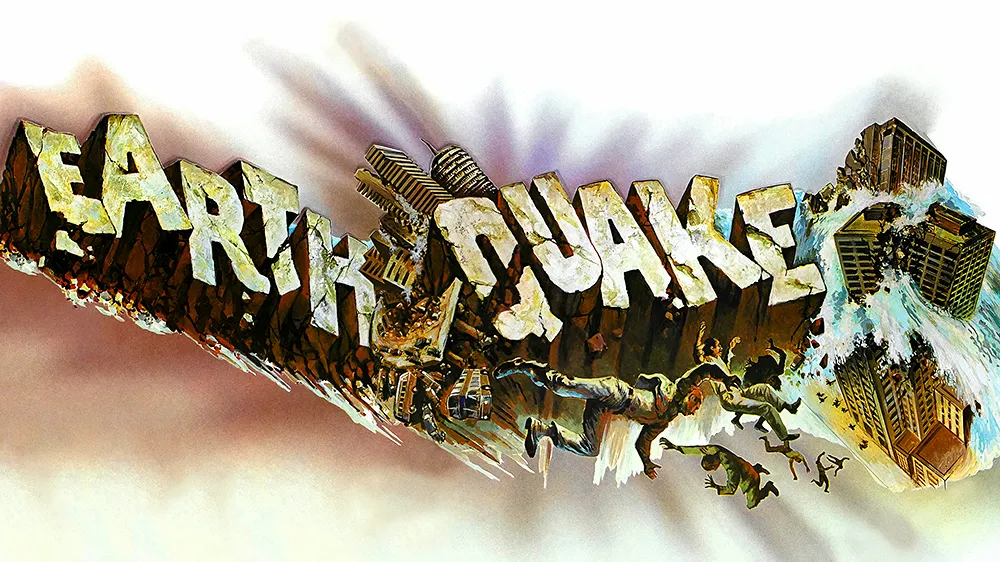
In a similar scenario, an earthquake devastates L.A., the largest major manufacturing area in the U.S. The affected region, in this case, Los Angeles and potentially surrounding areas, would experience a significant economic impact. Local businesses and industries could face challenges in resuming operations, affecting the regional supply chain and causing ripple effects throughout the global supply network. An earthquake of this magnitude would severely impact apparel, computers, electronics, and transportation products.
9. Krakatoa (1969)
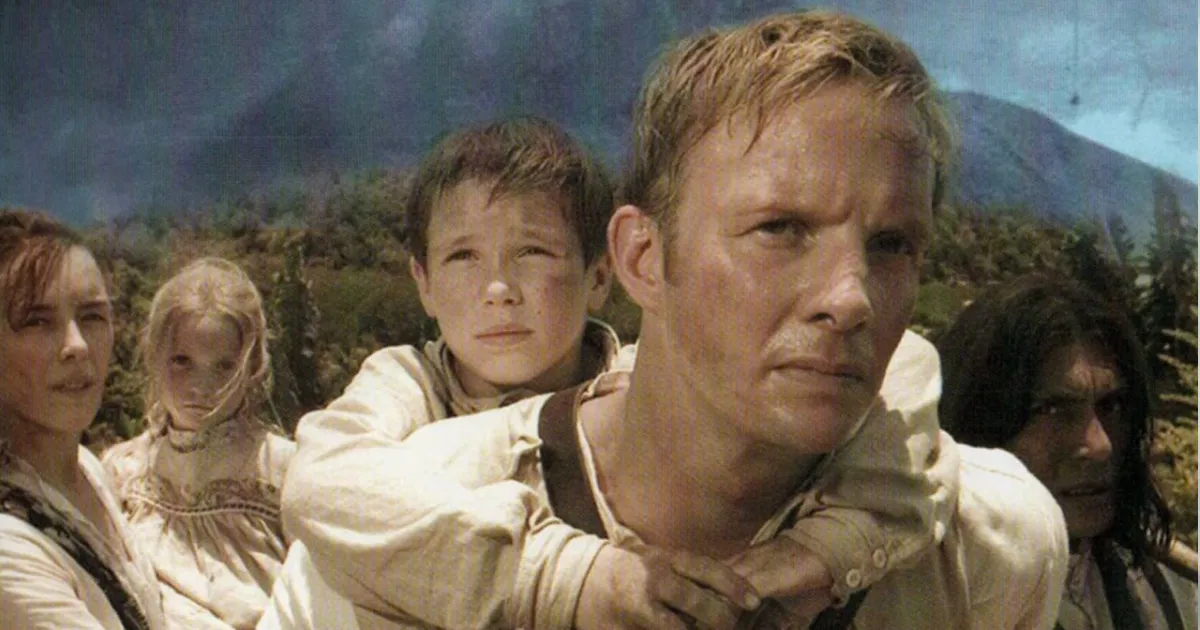
Krakatoa, East of Java, is a disaster film loosely based on the 1883 eruption of the Krakatoa volcano located in Indonesia. Volcanic eruptions like this can release ash and gases into the atmosphere, affecting weather patterns, which could impact agriculture. This could cause disruptions in the production of food and other agricultural products. In the actual Krakatoa eruption, ash fell in a 300,000 square-mile radius, halting ships for two and a half days. The actual volcano also triggered a series of tsunamis as far away as South America and Hawaii. If a volcano like this were to happen today, it could impact major industries in Indonesia, including petroleum, natural gas, textiles, mining, plywood, rubber, and fertilizer.
10. Dark Waters (2019)
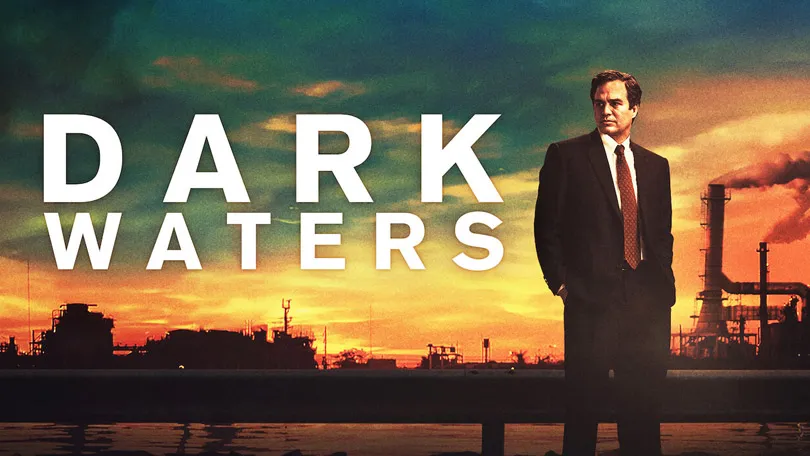
While not technically a disaster movie, this legal thriller tells the story of a chemical spill in Ohio and the following court battle between the town and the manufacturing corporation. The movie gained some buzz in February 2023 after a similar incident occurred in East Palestine, Ohio, after a train derailment caused an explosion and contaminated the air, water, and soil. Following an event like in the movie Dark Waters, companies implicated in environmental issues may face pressure to enhance transparency in their supply chains. Legal actions against the companies responsible for environmental pollution could result in financial penalties and legal liabilities.
These Movies Aren’t Real, But Supply Chain Disruptions Are
The extent of the damage to our earth and society is taken to an illogical extreme in these films. However, the disaster triggers and themes are very real and impact supply chains annually. From extreme weather and natural disasters to man-made threats, including geopolitical crises and pandemics, we can no longer consider these disruptions as Black Swan Events.
Further, while factory fires, floods, and labor strikes are not often the subject of epic disaster films, they continue to happen every day. Research shows that these relatively smaller yet more frequent events have a greater aggregate business impact. Prepare your supply for anything from the routine factory fire to the more infrequent zombie invasion. You can start by monitoring supply chain events globally and 24/7 with EventWatchAI.



